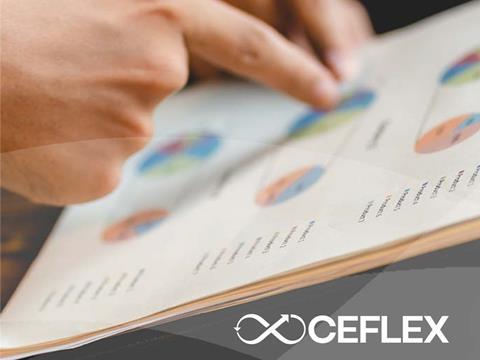
CEFLEX and Recyda have developed a new ‘Design Check’ tool to streamline collaboration between designers, technologists, customers, and suppliers of flexible packaging and drive the creation of sustainability-minded packaging.
CEFLEX’s ‘Designing for a Circular Economy’ (D4ACE) guidelines were launched in 2020, aiming to help companies optimise all flexible packaging for collection, sorting, and recycling and produce high quality recyclate.
Now design-check.ceflex.eu has been created as a free service to assess packaging portfolios and develop new products alongside partners, suppliers, and customers. It enables users to check whether a design or specification is suitable to their individual needs.
Tested and developed by a team of CEFLEX stakeholders, the tool is based on current D4ACE guidelines that cover mixed PO and mono-material PE and PP structures in a mechanical recycling process. Various stakeholders are said to have used it successfully.
Revisions will be made around updated based on an extensive testing programme and new materials entering the scope of Designing for a Circular Economy – for example, flexible packaging containing aluminium foil.
“The tool can be used either to assess an existing package, facilitate the R&D and design process, engage with other parts of the value chain, or prepare for recyclability testing,” said CEFLEX design lead Liz Morrish. “Assessment covers all parts of the guidelines, including their sortability and recyclability principles.
“It indicates if a specification or design is compatible, has limited compatibility or is not compatible in terms of the D4ACE categories. Users are also able to undertake assessments for multiple specifications or designs.”
Graham Houlder, CEFLEX project coordinator, added: “The Design Check tool makes our guidelines easier to use, providing a record to track improvements over time and helping the value chain continue to accelerate progress on circular design. It specifically responds to the particular needs of our stakeholders and wider flexible packaging market.
“The tool could also play a key role in implementation of an expected EU Packaging and Packaging Waste Regulation (PPWR) conformity assessment procedure. This will require producers and importers of packaged goods to gather relevant technical information and declare that the packaging they place on the market meets legal design requirements.”
Recyda previously received €1.75 million in funding to expand on its all-in-one software solution for the management and sustainability evaluation of companies’ packaging portfolios.
In other news, the Confederation of Paper Industries (CPI) has developed Papercycle, an online recyclability assessment and certification tool for fibre-based packaging materials and products seeking to help producers gauge the recyclability of their packaging in line with upcoming legislation.
Meanwhile, the 4evergreen alliance has released the beta version of its Fibre-Based Packaging Recyclability Evaluation protocol. The tool hopes to create an improved and standardised framework for evaluating the recyclability of packaging products in Europe.
If you liked this article, you might also enjoy:
The Lidl approach to packaging sustainability
How did Brazil achieve its 100% aluminium can recycling rate – and can it be replicated in the EU?
Experts have their say on the EU’s Packaging and Packaging Waste Directive revisions
A deep dive into the most important packaging sustainability trends and solutions














No comments yet